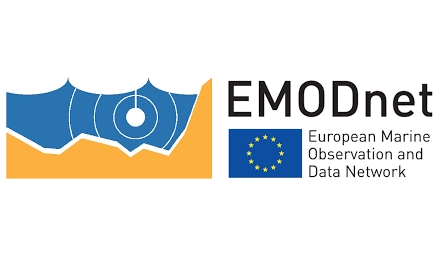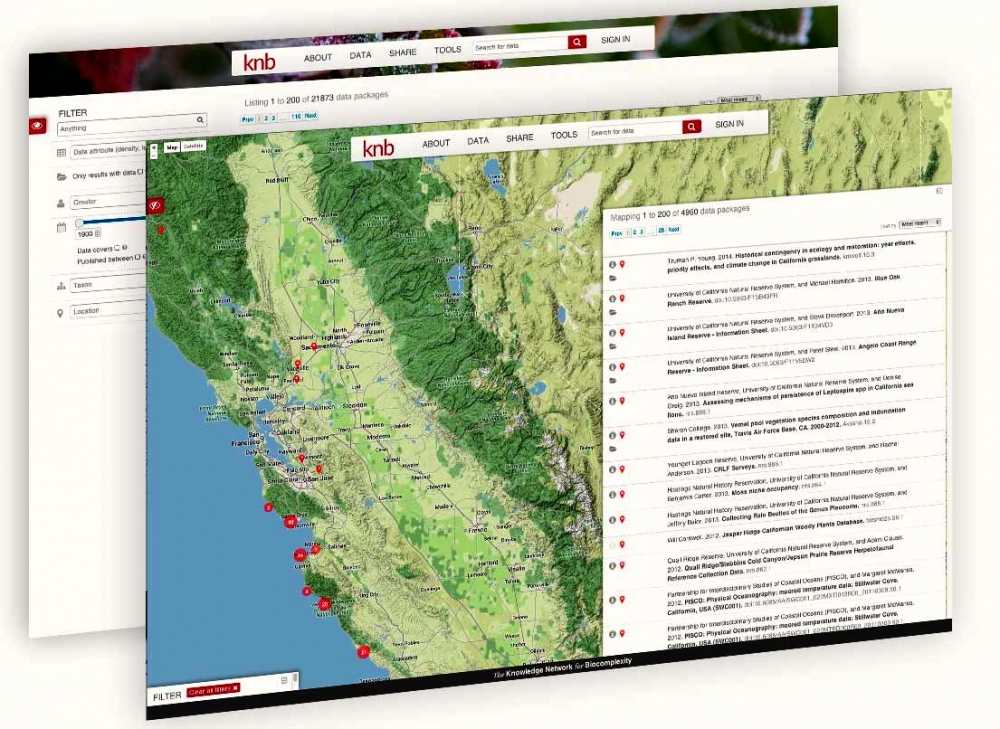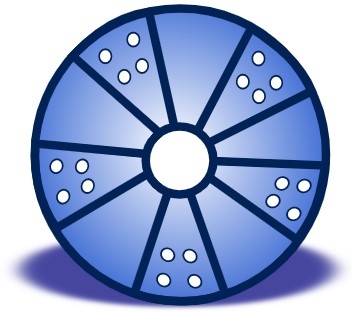repository
Type of resources
Available actions
Topics
Keywords
Contact for the resource
Provided by
Years
Formats
Representation types
status
-

The ODIS "Catalogue of Sources" aims to be an online browsable and searchable catalogue of existing ocean related web-based sources/systems of data and information as well as products and services. It will also provide information on products and visualize the landscape (entities and their connections) of ocean data and information sources. It will contribute to the objectives of the Agenda 2030, and in particular the UN Decade for Ocean Science for Sustainable Development. The Catalogue is not an ocean database or metadata repository. The catalogue includes descriptive information such as the URL, title, description, language, point of contact, geographic scope, available technologies for machine-to-machine interaction, keywords, etc. and can be searched on many of these fields. The IODE network of NODCs has been collecting, managing and serving data for decades. This effort has yielded an extensive, but distributed and heterogeneous collection of data and information sources. Additionally, the low threshold for technical capabilities required to offer data and information over the Internet means that many of the hosted resources are not readily discoverable through NODCs, regional or international data and information systems ODIS will provide an online catalogue of (ideally) all online data/information sources (and, where possible, metadata on off-line sources as well). Many regional and international programmes and projects have developed online data/information services but there is currently no "one-stop shop" where users are offered an overview and/or common data/information discovery interface. There are currently 3090 sources (2172 are searchable) catalogued in the system.
-

The primary aim of the Fisheries and Resources Monitoring System (FIRMS) is to provide access to a wide range of high-quality information on the global monitoring and management of fishery marine resources. FIRMS draws together a unified partnership of international organizations, regional fishery bodies and, in the future, national scientific institutes, collaborating within formal agreement to report and share information on fisheries resources. For effective fisheries information management, FIRMS also participates in the development and promotion of agreed standards. FIRMS system is part of the Fisheries Global Information System (FIGIS). Information provided by the partners is organized in a database and published in the form of fact sheets. This system provides the data owner with tools to ensure controlled dissemination of high quality and updated information.
-

Ireland’s Marine Atlas is developed and maintained by the Marine Institute with funding by the Government of Ireland. This work is part supported by the Irish Government and the European Maritime & Fisheries Fund as part of the EMFF Operational Programme for 2014-2020. The atlas provides a one-stop-shop to view and download marine environmental data relevant to reporting under Ireland’s Marine Strategy Framework Directive (MSFD). The aim of the European Union’s MSFD directive is to protect more effectively the marine environment across Europe through the establishment of “good marine waters”. Data in Ireland’s Marine Atlas has been guided by the European Directive on harmonising environmental data across Europe within a spatial data infrastructure known as INSPIRE. INSPIRE Data Specifications (Data Models) have been used to manage data to the categories visible under THEMES in the atlas. Many of the layers displayed in the Atlas are also used in the National Marine Planning Framework (NMPF). This framework aims to bring together all marine-based human activities, outlining the government’s vision, objectives and marine planning policies for each marine activity. The NMPF report details how these marine activities will interact with each other in an ocean space that is under increasing spatial pressure, ensuring the sustainable use of our marine resources to 2040. Please read the following information carefully as it sets out the terms and conditions that govern the use of products and services on this website. Once you have read these terms and conditions click the "Agree" button at the bottom of the page to proceed. By clicking the "Agree" button you will be deemed to have accepted the terms and conditions, our legal notices and privacy statement.
-

Explore global fisheries and aquaculture. Understand their status and how impacts are being managed. Learn what improvements are underway, and see what actions seafood stakeholders can take to drive sustainability. FishSource is a publicly available online resource about the status of fisheries, fish stocks, and aquaculture. FishSource compiles and summarizes publicly available scientific and technical information and presents it in an easily interpretable form. FishSource was created in 2007 by Sustainable Fisheries Partnership to provide major seafood buyers with up-to-date, impartial, and actionable information on the sustainability of fisheries and the improvements they need to make to become more sustainable. In 2018, information on aquaculture sources was added to the database to provide FishSource users with a more robust tool that covers all types of seafood production. Although the primary intended audience of FishSource is seafood businesses, other audiences - such as academics, researchers, and non-profit organizations - have also become frequent and welcomed users of FishSource. The information on FishSource is primarily developed and updated by a small team of in-house analysts, but their capacity is recognizably insufficient to maintain complete coverage of all global fisheries. As such, profiles may be incomplete or information may be out of date. The seafood industry and external contributors are invited to help fill any gaps that they consider priorities through our Rapid Assessment Program. FishSource always welcome comments on any of our profiles and encourage an open debate on the sources of information used and our interpretation of the data. Our objective is to use only publicly available sources and fully credit those sources, effectively acting as an inventory of information sources on fisheries and aquaculture.
-

EMODnet Biology provides three keys services and products to users. 1)The data download toolbox allows users to explore available datasets searching by source, geographical area, and/or time period. Datasets can be narrowed down using a taxonomic criteria, whether by species group (e.g. benthos, fish, algae, pigments) or by both scientific and common name. 2) The data catalogue is the easiest way to access nearly 1000 datasets available through EMODnet Biology. Datasets can be filtered by multiple parameters via the advanced search from taxon, to institute, to geographic region. Each of the resulting datasets then links to a detailed fact sheet containing a link to original data provider, recommended citation, policy and other relevant information. Data Products - EMODnet Biology combines different data from datasets with overlapping geographic scope and produces dynamic maps of selected species abundance. The first products are already available and they focus on species whose data records are most complete and span for a longer term.
-

The Knowledge Network for Biocomplexity (KNB) is an international repository intended to facilitate ecological and environmental research. The KNB was launched in 1998 with a grant from the National Science Foundation (NSF), with the purpose of being the long term home for synthesis datasets and research products generated by National Center for Ecological Analysis and Synthesis (NCEAS) working groups. Since then, NCEAS has continued to operate the KNB not only as an archive for NCEAS working group products, but also for the broader ecology and environmental science community. The KNB acceps all environmental or ecological related data and publishes datasets with Digital Object Identifiers for the express purpose of ensuring long-term access to these datasets. We strive to abide by FAIR (findable, accessible, interoperable, resuble) principles of data sharing and preservation. For scientists, the KNB is an efficient way to share, discover, access and interpret complex ecological data. Due to rich contextual information provided with KNB data, scientists are able to integrate and analyze data with less effort. The data originate from a highly-distributed set of field stations, laboratories, research sites, and individual researchers. The foundation of the KNB is the rich, detailed metadata provided by researchers that collect data, which promotes both automated and manual integration of data into new projects.
-

The Ocean Action Hub is an open, interactive website providing information and promoting action globally to support the implementation of SDG 14: Life below Water before 2030. The Hub was initiated by the United Nations Development Programme (UNDP), in partnership with the Governments of Sweden and Fiji, to facilitate multistakeholder engagement as part of the Ocean Conference process. The Hub hosted online discussions on ocean issues as an input into the development of the 1st Ocean Conference "Call for Action" in 2017, and facilitated co-development of solutions and voluntary commitments by multi-stakeholders, as well as providing a space for connecting and sharing ideas. In the run-up to the 2nd Ocean Conference the Hub continues to be maintained as a central source for information on implementation of SDG 14. The ocean plays a key role in the achievement of the 2030 Agenda for Sustainable Development. The ocean covers nearly three quarters of the Earth’s surface and contributes substantially to human development, including to the provision of food security, transport, energy supply, tourism and many of the planet’s most critical ecosystem services (carbon and nutrient cycling, climate regulation, oxygen production). The market value of marine and coastal resources and industries is approximately USD 3 trillion per year, or 5 percent of global GDP. Yet, today it is estimated that 40 per cent of our oceans are heavily affected by unsustainable practices, including over-fishing, land-based sources of pollution, habitat destruction, invasive species and climate change, particularly ocean acidification. SDG 14: Life below Water aims to address these threats.
-

Accredited through the MEDIN partnership, and core-funded by the Department for the Environment, Food and Rural Affairs (Defra) and the Scottish Government, DASSH provides tools and services for the long-term curation, management and publication of marine species and habitats data, within the UK and internationally. Below are a selection of projects, outputs and deliverables that DASSH and the MBA Data Team have been involved in recently. - NE Data Management: DASSH have been contracted by the Marine team at Natural England (NE) to support NE data dissemination. We have been digitising datasets used in Article 17 reporting and helping them input data to Marine Recorder and MEDIN guidelines. In addition, DASSH is running a 2-day workshop with the marine data team in October 2014 on data management and standards. The aims of the workshop are to present MEDIN data guidelines and standards and to run practicals on quality assurance (QA) issues with data, creating MEDIN formatted data, and creation of MEDIN metadata. - MCZ Data Archiving: DASSH staff have been working with Defra, JNCC, Natural England, Cefas and the other MEDIN DAC's in the development and implementation of a strategy for the archiving and dissemination of MCZ survey data. This involves the archives of many terrabytes of data from the survey work undertaken at 127 sites. DASSH is currently working with the other DACs archiving the data from several MCZ sites before taking delivery of the complete survey catalogue. - Non-Natives Data Management: DASSH staff work with other members of the KE team to help deliver the MBA contribution to the GB Non-native Species Information Portal. The data team ensure the validation of records submitted and raise alerts when records of Invasive Non-Native Species of concern and in disseminating information about species distribution via DASSH and the NBN. DASSH staff continue to liaise with organisations to ensure the prompt flow of marine non-native species distribution data to the public domain. The KE team facilitated the identification of two new marine invasive non-native species in 2014 and have subsequently created the identification sheet for these species. Hemigrapsus sanguineus (from volunteer records sent in for identification) and Hemigrapsus takanoi (first recorded by the John Bishop Group survey team). - EMODNet Biology: The Data Team are part of a consortium led by the Flanders Marine Institute (VLIZ) for the biological data component of EMODNet (European Marine Observation and Data Network). The Data Team will lead a work package relating to biological traits and indicator species as identified for Marine Strategy Framework Directive (MSFD) reporting, bringing an additional €130k of funding. - VALMER: The Data Team led a key work package in a £3.7 million (ca. €260k for the MBA) INTERREG project to "Develop, trial and refine methodologies that will be used to quantify and communicate the value (economical, social and environmental) of marine and coastal ecosystem services". The research identified an operational framework to value marine ecosystem services, and which could be used to enhance marine planning and policy decisions.
-

NCAR was established by the National Science Foundation in 1960 to provide the university community with world-class facilities and services that were beyond the reach of any individual institution. More than a half-century later, we are still delivering on that mission. NCAR provides the atmospheric and related Earth system science community with state-of-the-art resources, including supercomputers, research aircraft, sophisticated computer models, and extensive data sets. From its founding, NCAR was meant to provide the atmospheric research community with the shared resources necessary to work on the most important scientific problems of the day. Not much has changed. The hundreds of scientists who work here research all things atmospheric — which includes everything from the microphysics of cloud formation and the chemistry of air pollution to large-scale planetary waves and the impact of increased greenhouse gases on our climate. Since the atmosphere interacts with everything it touches, its crucial to investigate those interactions, too.
-

Stakeholder networks from 32 countries united to collaborate on Ocean Action, Climate Action, addressing pollution from land-based, riverine and marine-based sources and advancing Circular Economy development. International Waste Platform provides international expertise and launches joint initiatives; It supports advancing solutions to mitigate the global waste, plastic pollution & climate crises which are interlinked. Representatives committed themselves to align objectives, to support the implementation of strategies of Ocean Action and Climate Action, as well as to share ideas, best practices, concepts, programs, knowledge and opportunities; including the reduction of plastic debris at the source, before it enters rivers and the coastal environment. Country / regional networks and national marine debris networks make a difference in societal behaviour change and environmental policies by providing input and promoting action which aims at finding solutions to reduce (ocean) plastic pollution. Country and regional networks are instrumental to reach the prevention and reduction of marine pollution, facilitate and foster the establishment of national and international partnerships in a multi-stakeholder approach.
 Catalogue PIGMA
Catalogue PIGMA